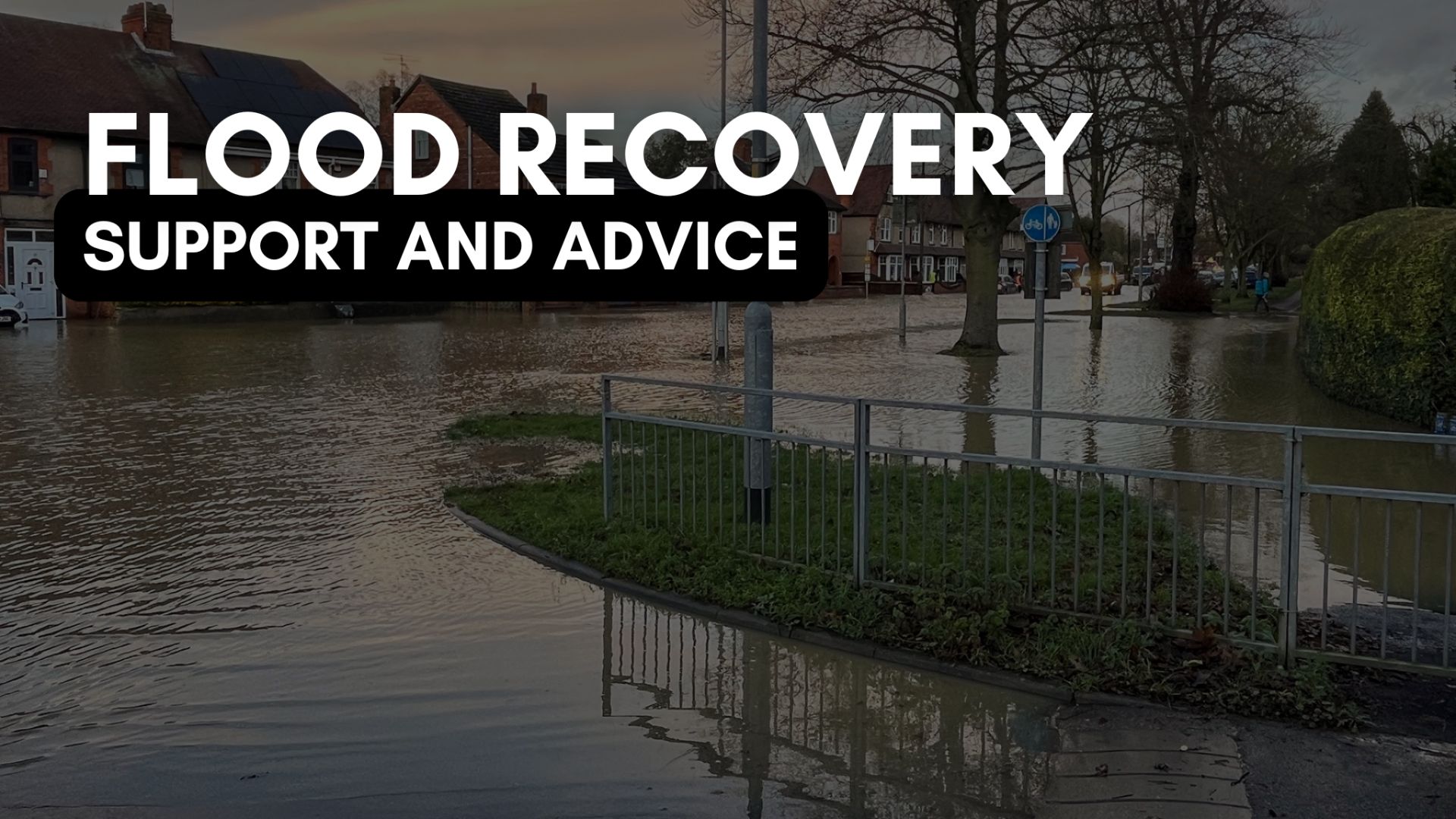
Lincolnshire County Council is working with the seven district council’s to help communities recover after heavy rain brought flooding to the county on 6 and 7 January 2025.
To see what disruption flooding is still having on the county’s roads, please see our road closures list.
If you have been flooded
- Take photographs of any damage – if it is safe to do so – to provide to your insurance company.
- Before you attempt to switch anything back on again, get your electric meter checked by the electricity transmission company and get your fuse box and electrical sockets checked by an electrician.
- Before you use gas appliances get a Gas Safe Engineer to check they are safe.
- Report flooding to the council - it is important we know about all instances of internal and external flooding, as this can help us lobby for government funding and we can investigate the factors that lead to the flooding to help prevent it in the future.
If you can't safely stay in your home, you should discuss alternative accommodation with your insurance company or district council’s housing team.
More information about what to do after a flood, can be found on the Government’s website.
Support clearing up
There are some things you can do to help protect you and your family following an internal flood.
These include:
- Wash down all surfaces with a disinfectant
- Any taps which have been submerged in flood water should be cleaned using a bleach
- solution and run for 30 seconds prior to the water being used
- Wash clothing, bedding and other soft furnishings on a hot wash
- Remove any soft furnishings that have been damaged beyond repair from the affected area to reduce the risk of spreading bacteria. Do not dispose of anything if you intend to make an insurance claim without speaking to your insurance company first
- Allow everything to dry thoroughly and safely keep the area well ventilated
- Disposal of all food in contact with flood water (even if sealed/canned)
- Dispose of any wooden equipment like wooden utensils and chopping boards. Crockery that has chips or is badly damaged should also be disposed of
- If fridges or freezers have been switched off you will need to consider disposing of food. Food in a freezer can remain frozen for up to 24 hours, the fuller the freezer the longer the contents will remain frozen. If the fridge has not been working for more than four hours throw the food away
In South Kesteven, the district council will begin bulky waste collections for flood damaged items, including upholstered furniture, on Monday 13 January. White goods - like fridges, freezers or cookers - will be collected on Wednesday 15 January. This assistance will be for identified properties that have notified Lincolnshire County Council they have suffered internal flooding.
In Boston and East Lindsey, skips have been provided in the worst affected areas and the local council has spoken directly to residents if their usual wheelie bin collections have changed.
Waste from properties not affected by flooding will be collected in the usual manner.
If your garden has been affected
- Leave lawns and borders to recover naturally. The UV rays from the sun will destroy bacteria over time
- Do not attempt to dig or rake any lawns and borders – this can spread the bacteria further into the turf which can enhance the bacteria
- Do not excessively hose lawns and borders as this will saturate the ground and prolong the life of the bacteria
- If you grow food in your garden and it has come into contact with floodwater, throw it away if it is to be eaten raw, such as lettuce or strawberries
- It’s fine to eat produce that is growing above the water and has not come into contact with flood water such as fruit on trees
- Fruit or vegetables to be eaten raw and planted after flooding should not be harvested for at least six months after the floodwater has receded. This is to make sure that any harmful germs in the soil from the flood water won’t survive and contaminate the produce.
- You can eat fruit and vegetables that are going to be cooked, even if they’ve been in contact with flood water. This is because cooking will kill any harmful germs that might be present.
Looking after your health
As well as limiting your contact with anything contaminated with flood water (see above), flooding can have an impact on your mental health.
For mental health support in Lincolnshire, contact:
Finding out what happened
Every instance of internal flooding is investigated by Lincolnshire County Council as part of what is called a ‘Section 19’ flood investigation. These reports identify what factors contributed to flooding, and make recommendations for the council, the Environment Agency, Internal Drainage Boards and other partners to help prevent flooding from happening in the future.
If your property has been flooded internally and you have not already reported it to us, please let us know.
It is important to note that Section 19 reports do not attribute blame for flooding events, and the county council has no powers to force any organisation or individual to carry out the actions that the report recommends.
Previous flooding reports are published on our website.
